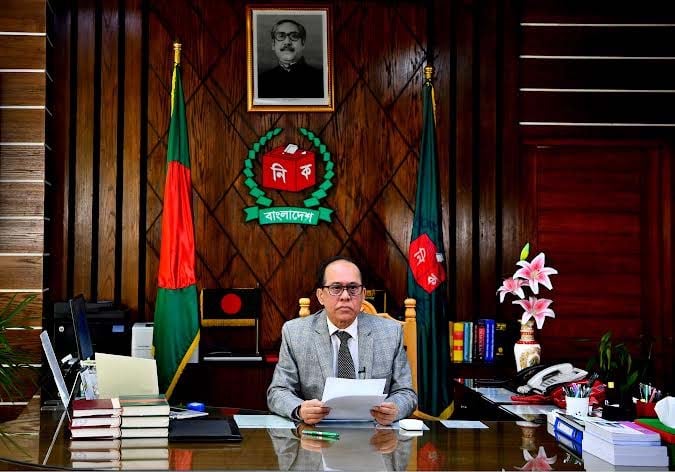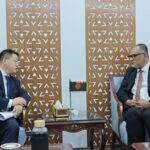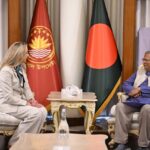 Sinem Cengiz: In the global landscape, each new crisis tends to overshadow the previous one. Thus, currently, Israel’s war on Gaza has superseded the conflict in Ukraine, which before had taken center stage from the Syrian civil war.
Sinem Cengiz: In the global landscape, each new crisis tends to overshadow the previous one. Thus, currently, Israel’s war on Gaza has superseded the conflict in Ukraine, which before had taken center stage from the Syrian civil war.
After 13 years of conflict, Syria is a fractured country in which humanitarian and security concerns are still growing. Despite a reduction in violence the crisis is far from over, and the Gaza war may make things even worse. This heightened risk is a cause for concern for Turkish policymakers, given the implications for both Syria, which sees the fire on its doorstep, and the broader region.
Recent comments on Syria by Turkish Foreign Minister Hakan Fidan are significant. Fidan was Turkiye’s spy chief for over a decade, and has closely monitored regional issues since the Arab uprisings that began in 2011. A few months after he assumed his new role following elections in Turkiye last May, the Gaza war erupted. Nevertheless, the Syria issue is of particular importance to Fidan, given his pivotal role in facilitating talks between Ankara and Damascus.
Turkish-Syrian normalization was on the agenda even before the 2023 elections. Foreign ministers of Syria, Turkiye, Russia, and Iran met on May 10 in Moscow amid efforts to end decades of tension between Syria and Turkiye. Russia proposed a roadmap for restoring Syrian-Turkish relations to normal. Evaluating the process after that meeting, Fidan said communication — both direct and indirect — was continuing at various levels. He highlighted Turkiye’s current priority of preventing conflicts between the Syrian regime and opposition, expecting both sides to maintain their positions within the Astana framework.
Turkiye has vested interests in maintaining the status quo in Syria amid escalating tensions in the region from Israel to Lebanon, and from Iran to Yemen. First, preventing the resurgence of terrorist elements in Syria is a key concern. In the event of renewed tension between regime and opposition forces, terrorist elements are likely to find fertile ground. To prevent this, Fidan said Turkiye had engaged in intense diplomatic, intelligence and military activity to ensure that matters remained in equilibrium and that the parties stayed in their positions. A military balance of power continues to exist in Syria.
Second, avoiding a new wave of refugees into Turkiye is crucial, and normalization with Syria could help to address this issue. From the Turkish point of view, normalization with Syria could benefit Turkish interests in two ways. First, Ankara would expect collaboration with Damascus in combating the YPG, which Turkiye views as the Syrian branch of the outlawed PKK. Second, there is an expectation that the normalization process would prompt the Assad regime to take concrete measures facilitating the return of the Syrian refugees currently residing in Turkiye.
Ankara has recognized that advocating leadership change in Syria is now impractical and is actively looking for ways to negotiate with Assad regime. With the establishment of suitable conditions, Ankara envisions the return of Syrian refugees in Turkiye to their homeland. This move is also seen as a means to bolster Ankara’s position in dealing with the US-backed YPG in northern Syria.
Finally, Fidan stressed the potential for political reconciliation and peace building when the two sides experienced a level of calmness. “The hatred of both sides can be forgotten and a political stance toward peace and the construction of the future can be formed, that is, through interactions. This is important,” he said. The problems between Turkiye and Syria are multidimensional and intertwined, including terrorism, refugees, and the existence of several foreign actors. There are conditions set by both sides, which hinders the process of normalization — but the process is not over.
The Gaza war has been the latest in a series of setbacks for Turkish-Syrian talks, but Turkiye is more concerned about Syria, which has been posed threat to its stability and security for years. The situation on the Lebanon-Israel border is the most probable trigger for a major conflict engulfing Syria. With so many external powers operating inside Syria’s airspace and on its territory, an escalation in violence poses serious risks. While Assad himself has kept a fairly low profile since the start of the war in Gaza, the opposition forces in the Turkiye-dominated areas favor the Palestinians against Israel. There is a concern that the Gaza war might shift the balance in Syria.
On the other hand, the Gaza conflict could actually be a factor to facilitate Turkiye-Syria talks. This reminded me of when Turkiye strengthened its relations with Syria as a result of Israel’s offensive on the Gaza Strip in 2009. At that time, Ankara held its first military drill with Syria, using ground forces in a border area that has been the focus of a 25-year conflict between Turkiye and Kurdish forces. This cooperation was considered “very troubling” by Israel.
Despite setbacks, including the Gaza war, Turkish-Syrian talks may find an opportunity for progress amid the escalating tensions. Turkiye and Syria share concerns about regional instability, and the continuing crises could be a catalyst for renewed dialogue.
Writer: Sinem Cengiz is a Turkish political analyst who specializes in Turkey’s relations with the Middle East.








